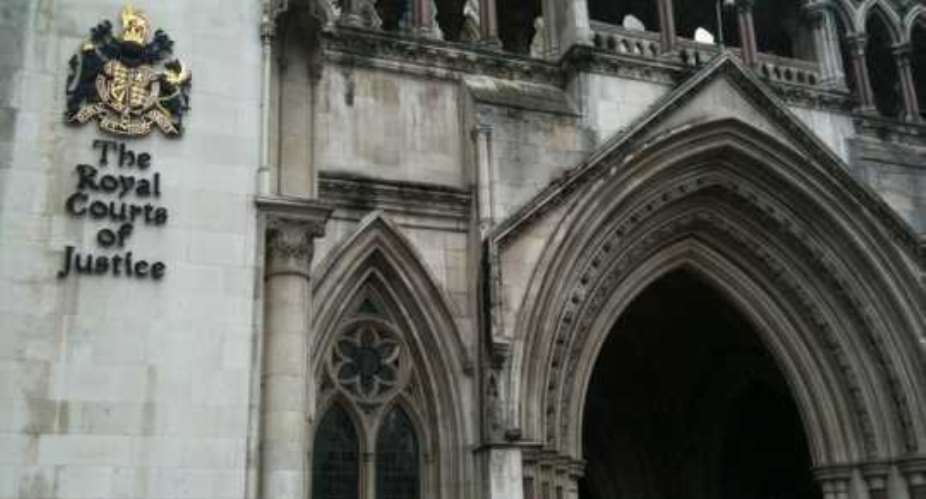London, Sept. 21, GNA - The President of Djibouti, Ismail Omar Guelleh, is set to appear as a witness in a corruption case in the UK next month, according to court documents, thus becoming the first African leader to do so.
This will be the next round of the ongoing heavyweight contest in London between President Guelleh's government and Djiboutian multimillionaire Abdourahman Boreh.
The government of Djibouti had a freezing order on Mr. Boreh's worldwide assets overturned by the High Court in the UK earlier this year, and is now accusing the businessman of corruption, which he denies.
The court unfroze Mr Boreh's assets when it became clear that he had been wrongly found guilty on terrorism charges in Djibouti, creating much embarrassment for the government.
In 2009 Mr Boreh was sentenced to 15 years in prison in absentia on charges that he was party to a grenade attack in Djibouti, a pretext that the government used to apply to the High Court in the UK to freeze Mr Boreh's global assets worth millions of pounds.
It eventually turned out in court that they were trumped up charges brought by the government. Mr Boreh said the charges were politically motivated and the government of Djibouti and its legal representatives apologised in court for the deception.
As round two is about to start, Mr Justice Flaux, who sat on the terrorism case, has insisted that President Guelleh must appear in court, noting that both sides had been making claims based on 'oral agreements'.
While Mr Boreh has been around in the court, senior members of the Djibouti government have been absent. So, Mr Justice Flaux argued that if the government wanted to 'make good [its] case' President Guelleh would have to be called as a witness, to which Dominic Kendrick, representing Mr. Boreh, replied: 'Certainly, our position would be that.'
Buttressing his reasons why President Guelleh should appear before the court, Mr Justice Flaux said: '…in terms of a case that runs on oral evidence…there comes a point where the claimants saying: you prove your case; where your case is: this was all agreed orally [and] they don't call the people with whom you say it was agreed orally.
'Then not only is the hope of any cross-examination that can take place limited, but the result is - if not a foregone one - likely to follow a certain course, isn't it, irrespective of how many documents there are?'
Then the issue of whether Mr. Guelleh should give evidence by video link came up. But in court on September 11, Mr Justice Flaux said: 'I will need a lot of convincing that that witness was not required to come to court.
'So I'm simply not prepared to countenance evidence by video link. That doesn't mean that they can't try and put in evidence hereafter to demonstrate that it really is totally impossible for him to come. 'But at the moment I'm not prepared to have him giving evidence via video link.'
Mr. Boreh is a former confidant of Mr Guelleh and, as is typical in an African setting, the businessman became rich and influential, as he used his connection with the president to expand his business interests.
Now, the government of Djibouti is claiming that Mr Boreh acquired his wealth through fraudulent and corrupt means, which the businessman denies, claiming that this is yet another ploy by the government to destroy him politically.
In the mid-1990s Mr Boreh was based in Dubai, from where he expanded his empire internationally. Between 2003 and 2008 he was the president or chairman of the board of directors of the second respondent in the upcoming hearing, the Djibouti Ports and Free Zone Authority.
During that period, substantial resources were invested in developing the port and the free zone.
In 2008, Mr Boreh left Djibouti, having had a dispute with the government, the first claimant, over tax claims levied against him and his companies.
Many observers see the contest as a fight for the presidency, pointing out that Mr Boreh, using his enormous wealth, could present a formidable challenge to President Guelleh who is making last ditch attempts to hang on to power in 2016.
In one despatch from the US embassy, revealed by Wikileaks, the State Department in Washington was told: 'Djibouti is less a country than a commercial city state controlled by one man, Ismail Omar Guelleh.'
Having failed to nail Mr Boreh, President Guelleh now has to appear before the UK High Court to state his case.
GNA





 Whoever participated in the plunder of the state must be held accountable – Jane...
Whoever participated in the plunder of the state must be held accountable – Jane...
 A vote for John and Jane is a vote to pull Ghana from the precipice of destructi...
A vote for John and Jane is a vote to pull Ghana from the precipice of destructi...
 I’ll repay your abiding confidence with loyalty, understanding and a devotion to...
I’ll repay your abiding confidence with loyalty, understanding and a devotion to...
 ‘I’ve learnt deeply useful lessons for the future' — Serwaa Amihere breaks silen...
‘I’ve learnt deeply useful lessons for the future' — Serwaa Amihere breaks silen...
 I’m sorry for the embarrassment – Serwaa Amihere apologises for leaked sex video
I’m sorry for the embarrassment – Serwaa Amihere apologises for leaked sex video
 Dumsor: Matthew Opoku Prempeh not in charge of Energy sector – Minority
Dumsor: Matthew Opoku Prempeh not in charge of Energy sector – Minority
 Adu Boahen’s murder: Police arrest house help who was in possession of deceased’...
Adu Boahen’s murder: Police arrest house help who was in possession of deceased’...
 Akufo-Addo nominates Felicia Attipoe as Tema West MCE
Akufo-Addo nominates Felicia Attipoe as Tema West MCE
 Election 2024: I can't have someone I defeated twice as my successor – Akufo-Add...
Election 2024: I can't have someone I defeated twice as my successor – Akufo-Add...
